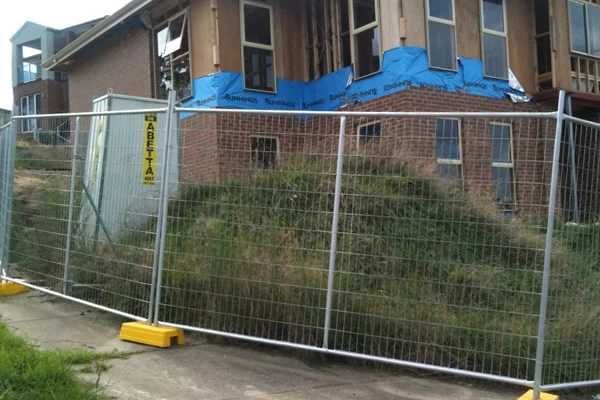 TEL:
+86-13102802206
TEL:
+86-13102802206
 Email:
fencenetting@china.com
Email:
fencenetting@china.com
 Language
Language
 TEL:
+86-13102802206
TEL:
+86-13102802206
 Email:
fencenetting@china.com
Email:
fencenetting@china.com
 Language
Language


The Cost of Barbed Wire Per Meter A Comprehensive Analysis
Barbed wire is a ubiquitous material utilized in various applications, including agricultural fencing, security enclosures, and even decorative purposes. The demand for barbed wire has remained robust due to its effectiveness in containing livestock, securing private property, and providing an economical alternative to more sophisticated fencing methods. However, understanding the cost of barbed wire per meter can help consumers make informed decisions when purchasing this essential product.
The cost of barbed wire varies significantly based on several factors, including the type of material used, the gauge of the wire, and the manufacturing process. Generally, barbed wire is made from galvanized steel, which enhances its durability and resistance to corrosion. This galvanized finish is crucial in ensuring a longer lifespan, especially in harsh environmental conditions. Different gauges offer varying strengths and applications; for instance, thicker wire (lower gauge number) may be more suited for high-security areas, while thinner wire (higher gauge number) works well for lightweight applications.
Typically, the price range for standard barbed wire can vary from $0.10 to $0.30 per meter, depending on the specifications mentioned above. Prices can fluctuate based on market conditions, including raw material costs, manufacturing expenses, and regional availability. For instance, during periods of high demand or shortages of steel, consumers may observe a sharp increase in prices. It's also vital to consider the supplier's location and shipping costs, as these factors can significantly influence the total expenditure on barbed wire.

When making a purchase decision, it's essential to evaluate the quality of the wire. Low-cost options may seem attractive initially but can result in higher maintenance and replacement costs in the long run. Therefore, seeking reputable suppliers who offer a balance of quality and price can be beneficial. Many suppliers also provide bulk purchasing options, offering significant discounts, which can lower the cost per meter for larger projects.
Additionally, buyers should consider supplementary expenses that may accompany the purchase of barbed wire. Installation costs can vary, depending on the complexity of the fencing required and whether professional installation services are used. DIY installation can save money but requires time, tools, and specific skills to ensure the fence is secure and effective.
In recent years, environmental considerations have influenced material sourcing and manufacturing practices. Eco-friendly alternatives are emerging in the market, but they often come with a higher price tag. As awareness of sustainable practices grows, some consumers are willing to invest more in environmentally friendly options, which can further affect the price of barbed wire per meter.
In conclusion, understanding the cost of barbed wire per meter involves examining various factors, including the type of material, gauge, supplier, and potential additional costs. While the price range can be broad, investing in high-quality wire often pays off in terms of longevity and performance. Whether for agricultural applications, security fencing, or decorative uses, consumers must weigh their options carefully to find the best balance between cost and quality for their specific needs. As always, thorough research and comparisons among suppliers will lead to the most informed and cost-effective purchasing decisions.